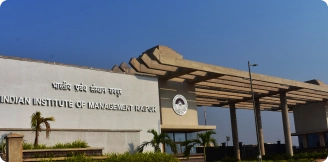Every site can excel with the right SEO techniques. You need to know what they are and how to use them effectively to improve your site's credibility. Let us check out five important aspects to improve your online presence.
Tips for effective SEO ranking
Here, we will give you tips to improve your SEO ranking for better presence and reach:
-
Relevant content
No matter how technically advanced your SEO tactics are, you can't compromise with content quality. If you enroll in the Imarticus digital marketing course, you will understand the value of good content and its potential to make a site rank.
If you have used WordPress, you will know that both SEO and readability go hand in hand. On one hand, you need to make sure you use the right keywords with high volume and relevant long-tail phrases to excel. On the other hand, you also have to make your content easy to read and understand. Using short sentences and an active voice are other essential aspects to make content grab more attention. Further, the niche, format, and other crucial details are essential as well.
When it comes to keywords, you don't just need to use them but also place them naturally. The content should not be stuffed randomly as that affects the readability as well.
-
Updating content at regular intervals
Search engines are very particular about content updates. When you keep editing or adding more content to your previous posts, the site improves in terms of relevancy. You need to keep your work fresh, even if you're not making too many posts at regular intervals. Make it a habit to audit your content and update them as and when needed.
-
Optimizing metadata
When designing a website, every page has space between head tags to allow metadata insertion. It records short descriptions of your web pages. If you own a CMS site, originally produced by UMC, your web team will pre-populate the data for you. However, you still need to review metadata for web pages and update if needed. There are three types of metadata:
Title
The first one is the title which is your heading or topic for a web page or blog. It stays right at the top and is the most significant part of your web page.
CMS websites created automated metadata developed by the web designing team. In such cases, people have to predetermine and create web pages that generate keyword-rich metadata.
Meta description
A meta description is a piece of short textual information that a browser uses to search your page. It explains what a web page is talking about and must include a keyword. Metadata is also a key factor to drive traffic and make people enter your site.
Keyword metadata
Although many people don't use this feature a lot, it allows you to add relevant phrases to your main keyword. If you incorporate this, add at least 3 to 7 phrases within 1 to 4 words.
-
Adds links to your web pages
The addition of both internal and external links to your web pages is crucial for SEO. It sends out signals to the search engine that you have relevant content on your website, which is worth traffic reachability. Creating content clusters and linking them internally with each other adds credibility to your domain or niche. Similarly using high-authority external links add worth to your web pages.
-
Using alt tags
Alternative text descriptions are again phrases that you would want to add to your webpage. It helps search engines locate your web page when people search for those phrases. You can compare the idea in the same way hashtags work for Instagram or Twitter. Adding secondary keyword phrases as alt tags is a smart way to increase the ranking of your web pages. For a more detailed idea, join the Imarticus digital marketing course and learn every tactic to excel at SEO.







